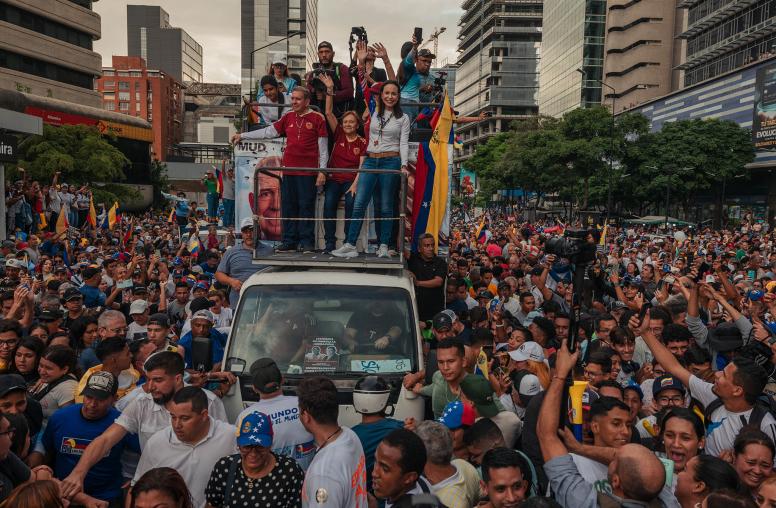Preventing Election Violence: Micro-Course
This online course introduces the concept of election violence and illustrates how it is a threat to peace and democracy. The course provides participants with knowledge and tools to prevent violence more effectively across different electoral and conflict environments. The course identifies different types of election violence, methods of prevention, and ways in which the election cycle can be used as a planning tool.

Elections can create anxiety and tension in many transitioning democracies around the world. In some cases, elections may turn violent, presenting a big setback not only to peace but to democracy as well. For the past 20 years, USIP has tried to better understand why this happens and how election violence can be mitigated and prevented. While most organizations in the election space do great work in providing technical assistance, by supporting logistical preparations, or by making sure that political parties campaign responsibly, USIP takes a different approach.
Course Objectives
By the end of this micro-course, participants will be able to:
- Define election violence and the importance of preventing it;
- Identify the characteristics of election violence;
- Recognize ways in which prevention has been addressed in the past by international organizations; and
- Identify common prevention approaches.
Section 1 - Introduction
Introduces the importance of preventing election violence through real-world stories and asks the learner to reflect on their prior knowledge.
Section 2 - Pillars
Defines key terms and concepts and examines basic facts about election violence.
Section 3 - Tools
Illustrates the emergence of election violence prevention as a peacebuilding practice, introduces the actors that are involved, and describes why the focus on elections is relevant to conflict resolution.
Section 4 - Application
Explores how the tools for preventing election violence are applied in real life and provides learners the opportunity to review the characteristics of healthy electoral processes through the International IDEA's Best Electoral Systems Test activity.
Section 5 - Conclusion
Provides a space for self-reflection and tests retention while earning a certificate.
Course Instructors and Guest Experts
Instructors
- Jonas Claes, Policy Officer, European External Action Service
- Debra Liang-Fenton, Consultant and former Senior Program Officer, U.S. Institute of Peace
Guest Experts
- Gabrielle Bardall, Gender Advisor, International Foundation for Electoral Systems
- Juan Diaz-Prinz, Senior Expert, U.S. Institute of Peace
- Larry Garber, Senior Technical Advisor, Digital Mobilizations Inc.
- Ruben Grangaard, Program Officer, U.S. Institute of Peace
- Kathleen Kuehnast, Director, U.S. Institute of Peace
- Vasu Mohan, Regional Director, Asia Pacific, International Foundation for Electoral Systems
- Tonis Montes, Program Officer, U.S. Institute of Peace
- Bhojraj Pokharel, Former Chief Election Commissioner, Election Commission of Nepal
- Jumaina Siddiqui, Director, U.S. Institute of Peace


